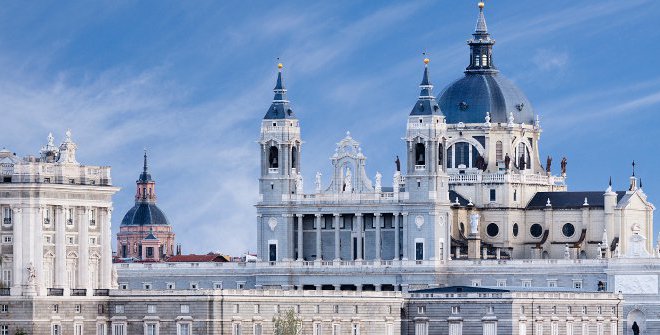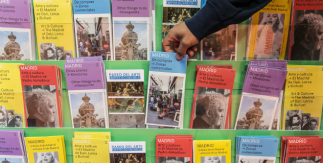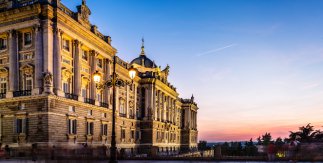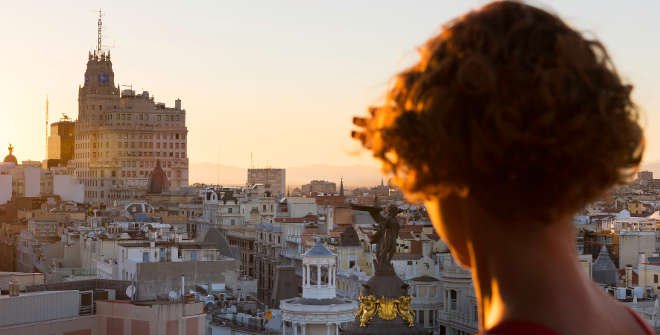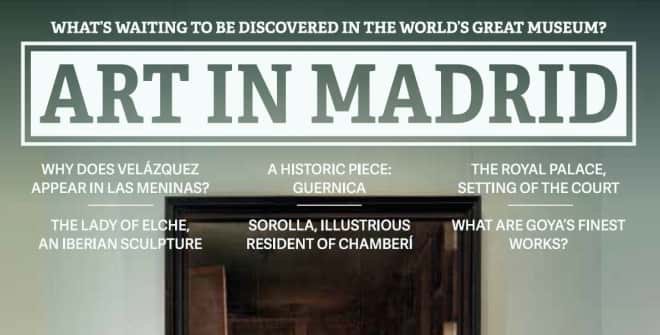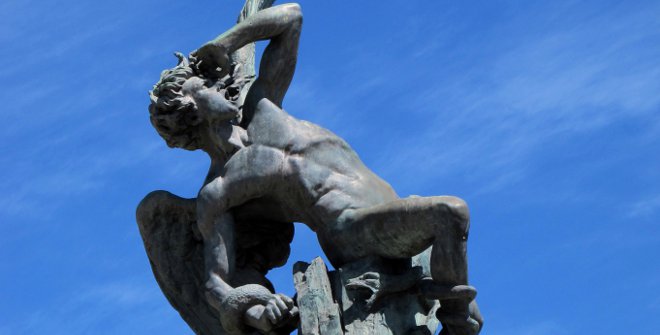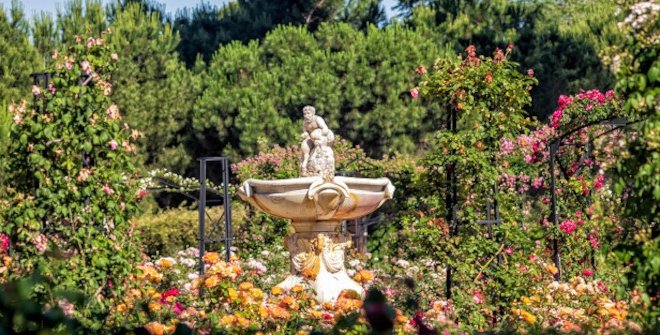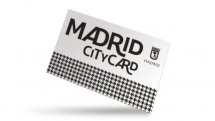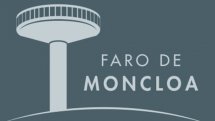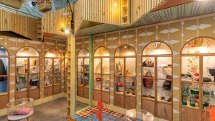Classic Madrid
To discover the most typical Madrid, the best place to start is the bustling Puerta del Sol, which has been pedestrianised and is the perfect place to take a photo with the Bear and the Strawberry Tree, Kilometre Zero mark, Mariblanca, Casa de Correos and the legendary Tío Pepe neon sign. The itinerary continues in Plaza Mayor, where history spans four centuries, and then in Plaza de la Villa, the beating heart of the city in the Middle Ages, where you can still see some of the oldest buildings: the Lujanes House and Tower, the Cisneros House and Casa de la Villa. And visit the Royal Collections Gallery, built within the complex of the Palacio Real in Madrid.
Madrid’s cathedral, La Almudena, is a pebble’s throw from here. Take a look at the neo-Romanesque crypt and the dome, which affords marvellous views of the city. Next to the cathedral you can still find the remains of the Arab city walls and, of course, the Royal Palace, which is worth a visit. When you get out, take a few minutes off at the Sabatini Gardens or Campo del Moro Park, an extensive English-style garden at the foot of the Palace where peacocks can be seen walking about. It stands out for the Mirador de la Cornisa observation deck, located in the Plaza de la Armería, from where you can enjoy spectacular views over the Campo del Moro Park and the Casa de Campo. The Royal Collections Gallery, a museum that offers a journey through the history of the Spanish monarchy, rounds off the cornice that opens out onto the Campo del Moro Park from the Plaza de la Armería.
In addition, Madrid has numerous statues scattered throughout the city, some of them with very curious and interesting stories such as El Día y la Noche (Day and Night) or " La mano " (The hand) by Botero.
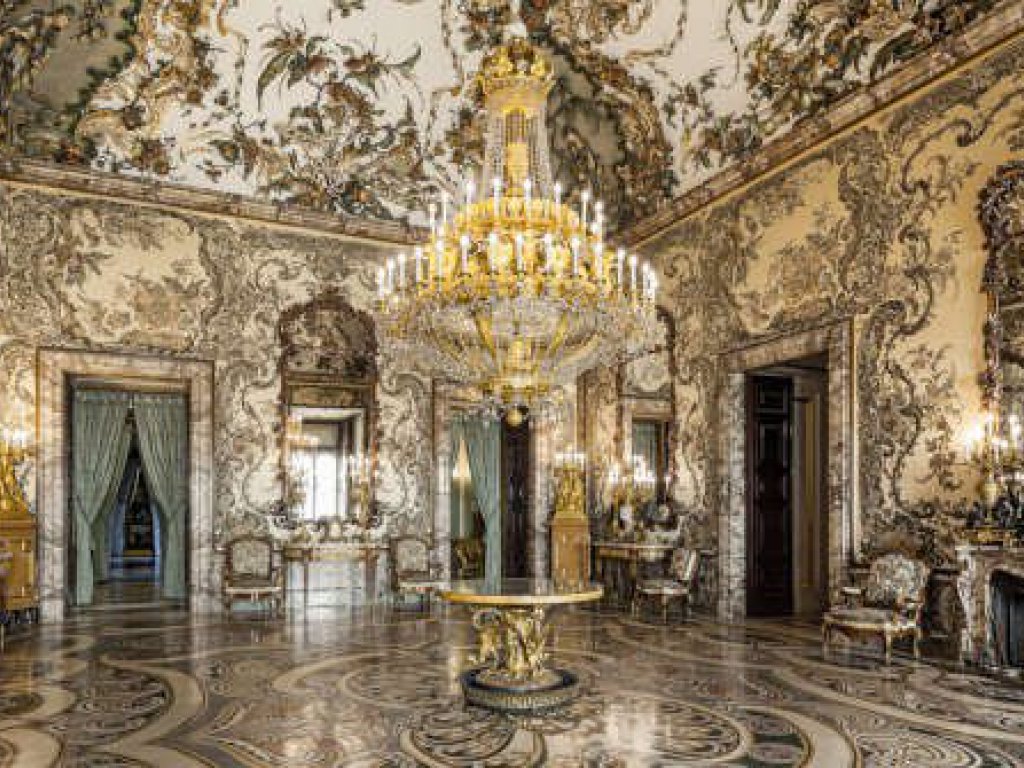
Parks and gardens
There are lots of green areas in Madrid. El Retiro Park is obviously a must – a historic park in the heart of the city where you can take a break or engage in interesting cultural activities. Main sights at El Retiro include the The Glass Palace and the Velázquez Palace (both of which host exhibitions mostly of contemporary art), the Monument to King Alfonso XII and the statue of the Fallen Angel. The artificial mountain known as Montaña de los Gatos (Cat Mountain) also stands out in the park. El Retiro is close to two of Madrid’s most popular attractions: the Alcalá Gate (Puerta de Alcalá) and the Cibeles Fountain.
It is also worth visiting Juan Carlos I Park (next to Campo de las Naciones), which has a lake where you can do several sports, fly kites and there is a free bike hire service, Cerro del Tío Pío (Vallecas), which offers spectacular views of Madrid from its seven hills, or the Palacio del Príncipe de Anglona Gardens (La Latina Quarter), an authentic –and hidden- haven of peace.
Finally, there are three parks that are becoming increasingly popular with locals: El Capricho, where you’ll find labyrinths, fountains, a pavilion and even a bunker that was the barracks of the Central Republican Army during the Civil War, Quinta de los Molinos with its beautiful almond trees, and Quinta de Torre Arias, with an amazing collection of plants and large patches of trees.
Art and about
There are three museums in Madrid that no art lover can miss, housing masterpieces from the Middle Ages to the present day. At the Prado Museum you can meet Goya, Velázquez, Titian, Rubens and Hieronymus Bosch, among other masters. The Reina Sofía Museum is home to Picasso’s Guernica and other great modern and contemporary art gems. Finally, the Thyssen-Bornemisza National Museum houses a rich art collection spanning several centuries, from the Trecento to the avant-garde. If you’re planning to visit all three museums, the Paseo del Arte Pass could come in handy, as it offers interesting discounts.
The Art Walk, epicentre of the city’s cultural life, was declared UNESCO World Heritage in 2021 in the category of Cultural Landscape and includes the Paseo del Prado between Cibeles and the Plaza de Atocha, the whole of Retiro Park, and the Jerónimos neighbourhood.
In the nearby Barrio de las Letras (Literary Quarter),you can visit the Lope de Vega House Museum, not far from Miguel de Cervantes’s burial site at the Trinitarian Convent. For a selfie with Don Quixote and Sancho Panza, you should go to Plaza de España, which, after its remodelling, has become a central axis of the city, a green space with sculptures, children’s play areas and cycleways. From there, it is easy to get to the Temple of Debod, from whose gardens a beautiful sunset can be admired. After the completion of the remodelling works in Plaza de España.
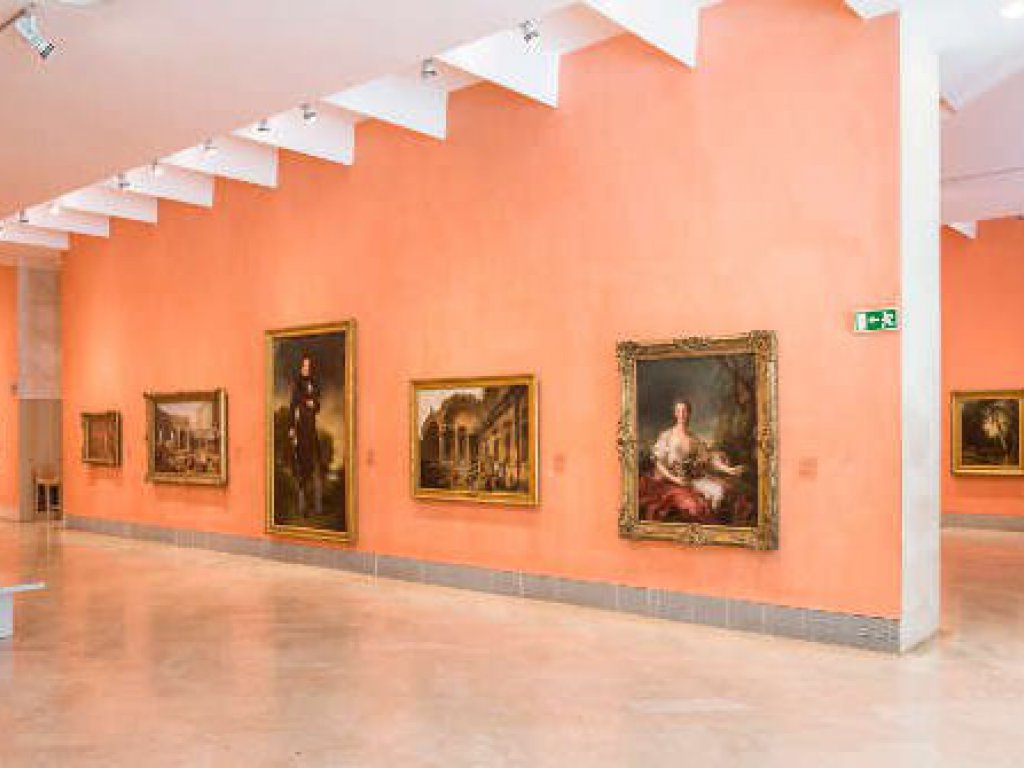
Strolling, bar hopping, shopping
Madrid is great city for walking around and for going out for shopping and tapas. El Rastro, the city’s traditional flea market, and the taverns or tascas where you can have your evening aperitif are a must. Rehabilitated market halls – Antón Martín, San Antón, San Miguel – now gather some of the finest food stalls in town. There are others away from the city centre: Chamberí, Maravillas, La Paz, Las Ventas…
In terms of shopping, the Sol-Preciados-Carmen and Mayor-Arenal areas form an immense open-air shopping centre, open every day of the week with multi-brand and designer shops.
Don't forget the century-old shops, which include alpargaterías (shops dedicated to the espadrilles trade), jalmerías (saddles), guitarrerías (guitars), cordelerías (ropes), cuchillerías (knives), sastrerías (tailors) or corcheras (cork stoppers). Centenary restaurants that have been preparing the city’s typical dishes for more than one hundred years and serve the region’s finest wine, such as Botín, Malacatín, Casa Labra or Lhardy, among others.
Flamenco and football
Madrid is one of the most passionate cities about football in Spain. There are three stadiums you can visit: Santiago Bernabéu (Real Madrid CF house that is currently under renovation); Cívitas Metropolitano Stadium of Atlético Madrid, which has undergone major renovation; and Vallecas Stadium, where the city’s third football club, Rayo Vallecano, plays.
Madrid is also considered to be the world capital of flamenco, home to some of the oldest and most traditional tablaos.
You can explore the most alternative side to Madrid, too!
DON'T MISS
Download free maps and guides to the city to help you plan your trip.
Discover the city's most popular sights and attractions, from one of Europe's largest royal palaces to the magnificent Prado Museum and the Real Madrid football stadium.
